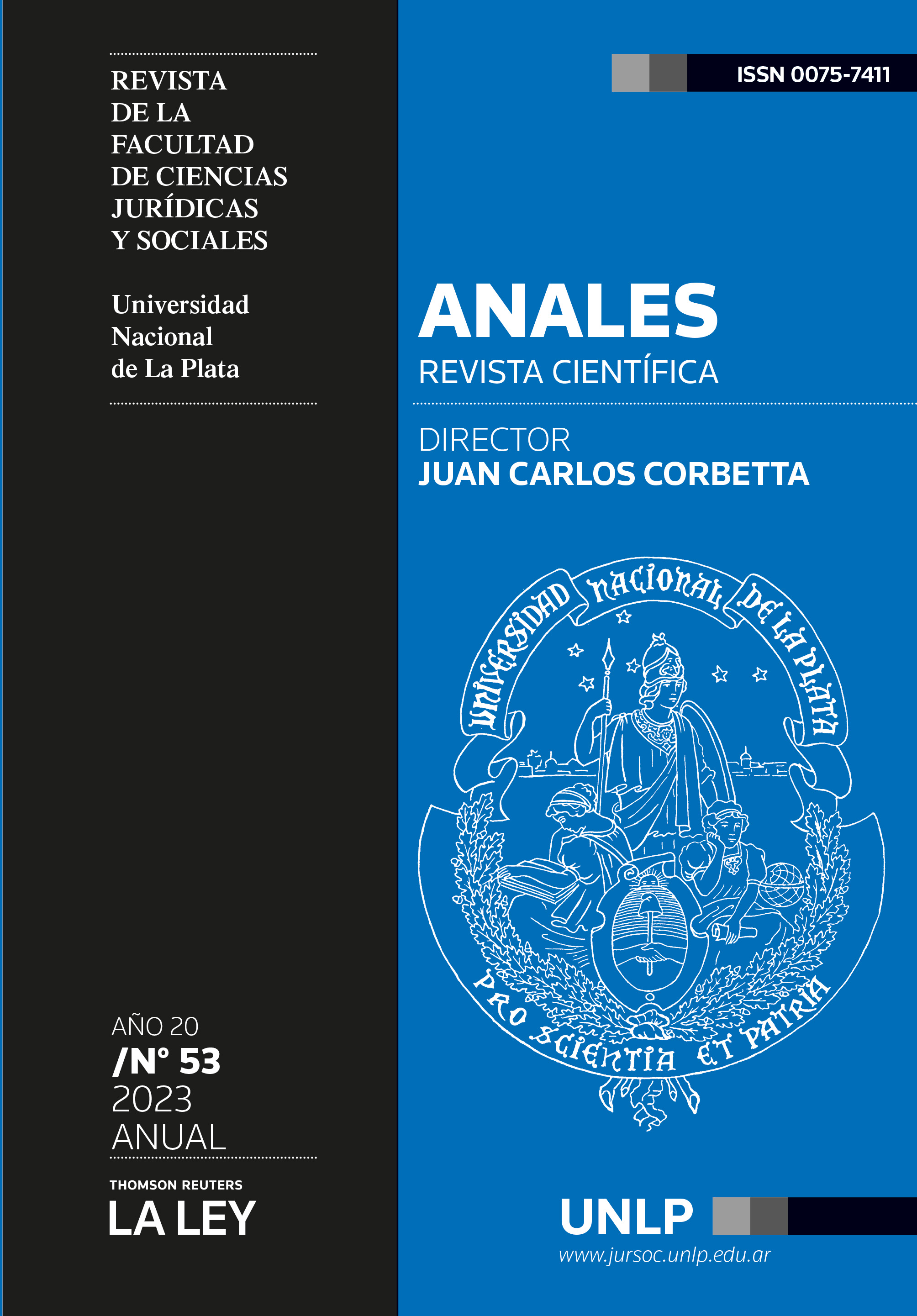Small claims and access to justice
DOI:
https://doi.org/10.24215/25916386e159Keywords:
small claims , access to justice , incentives, modelsAbstract
How to understand small claims and why they are, when they are, an access to justice problem? How to evaluate judicial strategies that try to address this problem? This paper explores these questions and offers some answers, which can be summarised as follows. It is proposed to understand small claims as those cases where there is no positive incentive to sue because of low expected benefits or other factors that I will highlight. Small claims will be a problem if it would be desirable for them to have access to the courts. Judicial systems tend to address this problem in two ways, either by simplification or by unification. Such strategies, I will argue, need to be evaluated for their ability to induce desirable behaviour, which requires theoretical models that take into account how people actually behave.
Downloads
References
Acciarri, H. (2019). Derecho, economía y ciencias del comportamiento. Ediciones SAIJ.
Berizonce, R. O. (1987). Efectivo acceso a la justicia: Propuesta de un modelo para el estado social de derecho. Editora Platense.
Brodsky, S. L., Brodsky, C. M., y Wolking, S. H. (2004). Why People Don’t Sue: A Conceptual and Applied Exploration of Decisions Not to Pursue Litigation. The Journal of Psychiatry & Law, (32 (3), pp. 273-295).
Cappelletti, M., y Garth, B. (1983). El acceso a la justicia. Movimiento mundial por la efectividad de los Derechos. Informe general (S. Amaral, Trad.). Colegio de Abogados del Departamento Judicial de La Plata.
Cooter, R. y Ulen, T. (2012). Law and Economics (6th Edition). Addison-Wesley.
Dirección Nacional de Modernización Judicial (2018). Justicia de paz. Buenos Aires: Ministerio de Justicia y Derechos Humanos de la Nación.
Dirección Nacional de Promoción y Fortalecimiento para el Acceso a la Justicia. (2019). Segundo Estudio de Necesidades Jurídicas Insatisfechas. Buenos Aires: Ministerio de Justicia y Derechos Humanos de la Nación.
Fiss, O. M. (1998). Contra el acuerdo extrajudicial. Revista de la Universidad de Palermo, (3, pp. 59-70).
Fiss, O. M. (2007). El derecho como razón pública (E. Restrepo Saldarriaga, Trad.). Marcial Pons.
Giannini, L. J. (2014). Experiencia Argentina en la mediación obligatoria. La Ley, (5, 1-7).
Giannini, L. J. (2015). ¿Es la mediación obligatoria en Argentina un instrumento de acceso a la justicia? Revista Iberoamericana de Derecho Procesal, (2, pp. 92-102).
Guthrie, C. (1999). Better Settle Than Sorry: The Regret Aversion Theory of Litigation Behavior. University of Illinois Law Review, (43).
Guthrie, C. (2000). Framing Frivolous Litigation: A Psychological Theory. The University of Chicago Law Review, (67, (1), pp. 163-216).
Issacharoff, S. (2013). Acciones de clase y autoridad estatal. Revista de proceso.
Korobkin, R. B. y Ulen, T. S. (2000). Law and Behavioral Science: Removing the Rationality Assumption from Law and Economics. California Law Review, (88, (4), pp. 1051-1144).
Lindblom, P., y Nordth, R. (2003). La Ley sueca de procedimientos de grupo. En A. Gidi y E. Ferrer Mac-Gregor (Eds.), Procesos Colectivos. La tutela de los derechos difusos, colectivo se individuales homogéneos en una perspectiva comparada. Porrúa.
Lorenzetti, R. L. (2017). Justicia colectiva. Rubinzal Culzoni Editores.
Merry, S. E., y Silbey, S. S. (1984). What Do Plaintiffs Want? Reexamining the Concept of Dispute Alternative Dispute Resolution. The Justice System Journal, (9, (2), pp.151-178).
Mosterín, J. (2000). Conceptos y teorías en la ciencia (Primera edición: 1984). Alianza Editorial.
Papayannis, D. (2009). Fundamentos económicos de la responsabilidad extracontractual. Ad-Hoc.
Posner, R. A. (1975). Economic approach to law. Texas Law Review, (53, p. 757).
Posner, R. A. (1999). An economic approach to the law of evidence. Stanford Law Review, (51, p. 1477).
Rachlinski, J. J. (2011). The Psychological Foundations of Behavioral Law and Economics. University of Illinois Law Review, (pp. 1675-1696).
Salmon, W. C. (1971). Introduction. En W. C. Salmon (Ed.), Statistical Explanation and Statistical Relevance (Vol. 69, pp. 3-18). Pittsburgh: University of Pittsburgh Press.
Salmon, W. C. (1971). Statistical Explanation. En W. C. Salmon (Ed.), Statistical Explanation and Statistical Relevance (Vol. 69, pp. 29-87). Pittsburgh: University of Pittsburgh Press.
Shavell, S. (2016). Fundamentos del análisis económico del derecho (Y. G. Franco, Trad.). Editorial Centro de Estudios Ramon Areces.
Silvestri, E. (2018). Small Claims and Procedural Simplification: Evidence from Selected EU Legal Systems. Access to Justice in Eastern Europe, (6).
Stordeur, E. (2011). Análisis económico del derecho. Una introducción. Abeledo-Perrot.
Tolosa, P. (2017). Acciones de clase, “microdaños” a los consumidores y fluid recovery: Alternativas institucionales y costos sociales. The Latin American and Iberian Journal of Law and Economics, (3, (1), p. 3).
Ulen, T. S. (2011). An introduction to the law and economics of class action litigation. European Journal of Law and Economics, (32 , (2), pp. 185-203).
Vincent, C., Phillips, A., y Young, M. (1994). Why do people sue doctors? A study of patients and relatives taking legal action. The Lancet, (343, (8913), pp. 1609-16139).
Zamir, E., y Teichman, D. (Eds.). (2014). The Oxford Handbook of Behavioral Economics and the Law. Oxford University Press.
Zucker, B., y Her, M. (2003). The People’s Court Examined: A Legal and Empirical Analysis of the Small Claims Court System. University of San Francisco Law Review, (37, (2), p. 2).
Downloads
Additional Files
Published
How to Cite
Issue
Section
License
Copyright (c) 2023 Alejo Joaquín Giles

This work is licensed under a Creative Commons Attribution-NonCommercial-NoDerivatives 4.0 International License.
Esta licencia no permite la generación de obras derivadas ni hacer un uso comercial de la obra original, es decir, sólo son posibles los usos y finalidades que no tengan carácter comercial.






























